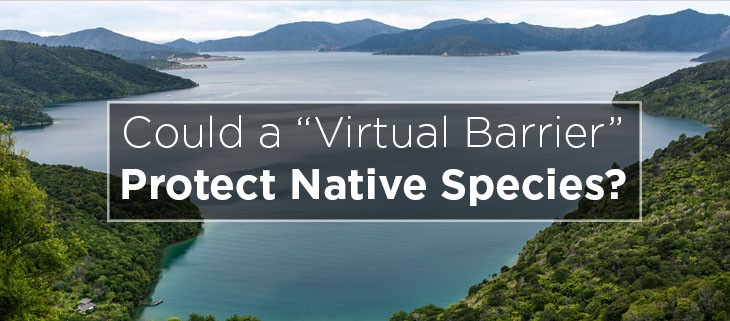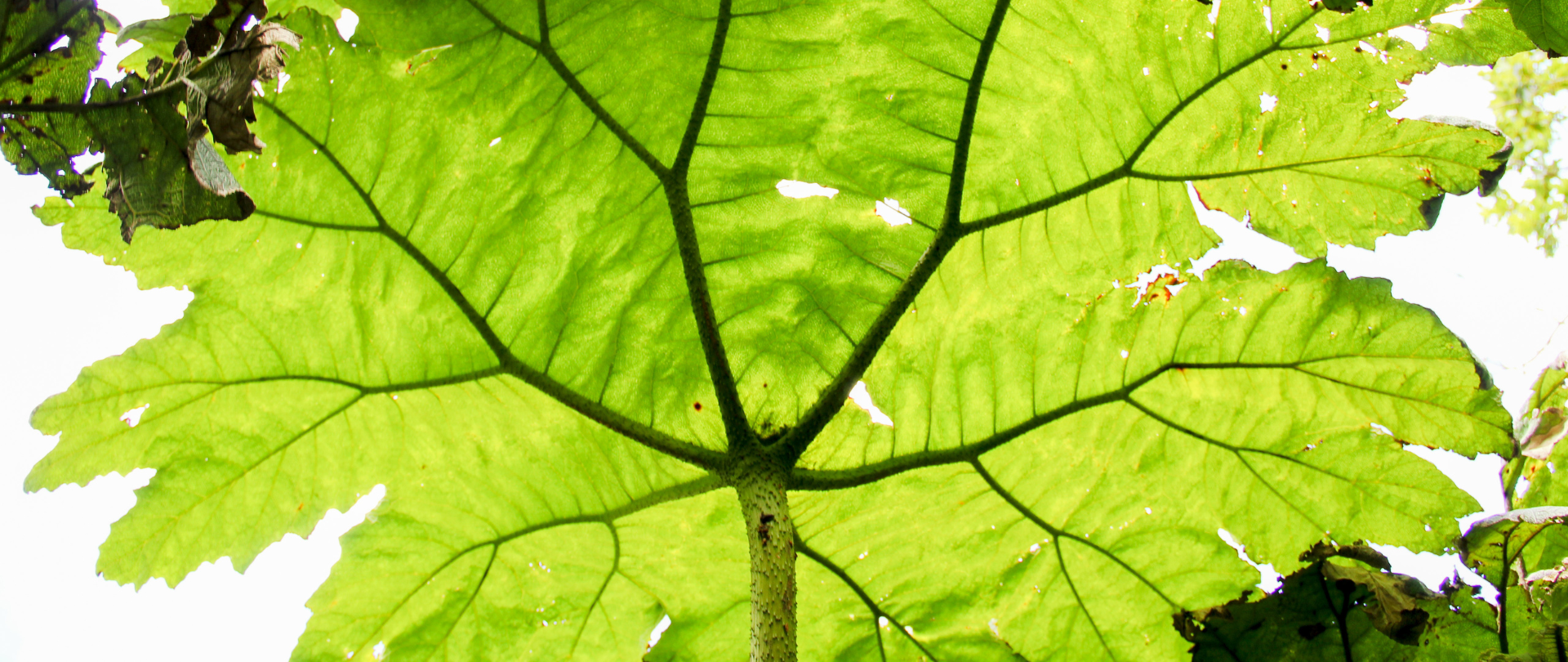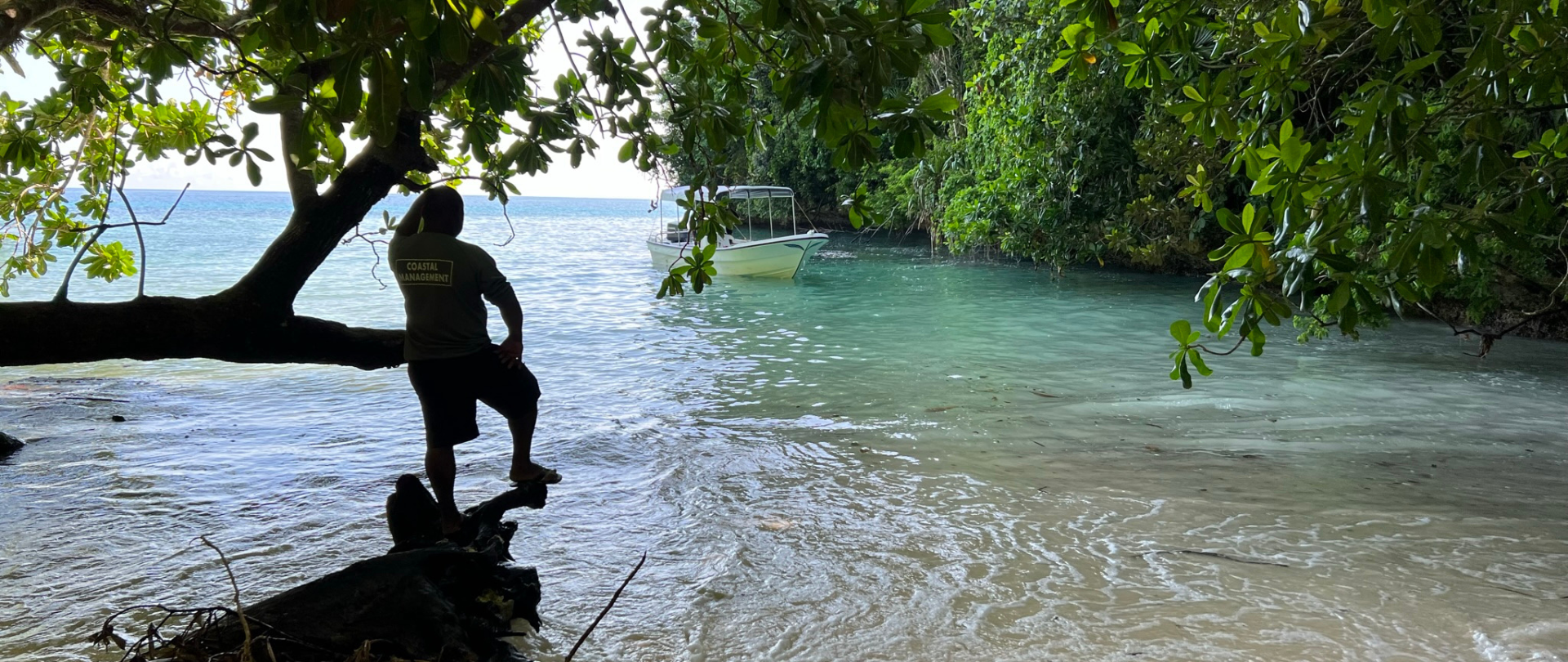December 22, 2025
Remote Sensing on Islands: Seeing Ecosystems Through Data
Elke Windschitl, our Conservation Impact Data Specialist, gives us the lowdown on
Published on
May 2, 2017
Written by
Emily Heber
Photo credit
Emily Heber

Technology is an asset in the world of conservation, especially when it comes to the removal of invasive predators. In the Marlborough Sound, Bottle Rock Peninsula has proven to be the case and point for the benefits technological development bring to conservation.
The peninsula is approximately 440 hectares of New Zealand forest. Zero Invasive Predators (ZIP), a research and development company, has been using a series of invasive removal and detection techniques. Researchers and conservationists on the peninsula have been working hard to remove invasive predators from the area in order to protect native species.

Since this portion of land is a peninsula, ZIP is attempting to create a virtual barrier by utilizing the most efficient devices to prevent reintroduction of invasive predators. The company is establishing “defensive lines” through the two kilometer neck of the peninsula to protect the area from the reintroduction of invasive species. The project will support New Zealand’s goal of being predator-free by 2050. James Russel, a science advisor for Predator Free 2050 commented:
The density of devices along the virtual barrier is clear. Spaced every ten meters, ones sees trap boxes lined up in to the distance.
Even with the heavy use of detection and trapping techniques along the barrier, invasive predators such as possums and rats are able to sneak into the protected area. This is where advances in technology are necessary.
Zero Invasive Predators (ZIP) at Bottle Rock Peninsula.
Luckily, new technology is always on the horizon for conservation. Advances such as wireless remote monitoring allow the researchers to easily find out via a text message which traps have been activated. In order to better understand the movements of the invasive predators, ZIP is now releasing individuals with trackers to see how far they move around.
ZIP and the Predator Free 2050 initiative will require advances in technology to ensure the removal of invasive rats, stoats, and possums. These approaches to conservation are going to be increasingly valuable to the protection of native island species in New Zealand and around the world.
Featured photo: Resolution Bay, NZ. Credit: Harald Selke
Source: National Geographic
Check out other journal entries we think you might be interested in.

December 22, 2025
Elke Windschitl, our Conservation Impact Data Specialist, gives us the lowdown on

October 29, 2025
Astounding evidence of recovery on Ulong Island in Palau after just one year!

June 13, 2025
Our partner Conservation X Labs has joined the IOCC, committing to deploying transformative technology to protect island ecosystems!

May 19, 2025
Read our position paper on The 3rd United Nations Ocean Conference (UNOC 3) to see why we're attending and what we aim to accomplish!

December 4, 2024
Ann Singeo, founder of our partner organization the Ebiil Society, shares her vision for a thriving Palau and a flourishing world of indigenous science!

November 22, 2024
This historic agreement aims to protect the marine and coastal areas of the Southeast Pacific.

November 18, 2024
Our projects to restore key islets in Nukufetau Atoll forecast climate resilience and community benefits in Tuvalu!

October 3, 2024
Island Conservation and partners have published a new paper quantifying ecosystem resilience on restored islands!

September 10, 2024
Climate Week NYC: what is it and why is it important? Read on to find out why Island Conservation is attending this amazing event!

September 5, 2024
With sea levels on the rise, how are the coastlines of islands transforming? Read on to find out how dynamic islands really are!